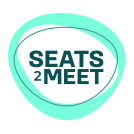Phoebe Tickell is an experienced facilitator and design thinker, an expert in topics of decentralization, distributed governance and in ways of building a non-hierarchical organizational structure. Phoebe is going to be the second speaker at the “How about the Future of Work – Today” conference in London.
Here is our recent talk with Phoebe, so you can get to know her a little bit better!
Hi Phoebe! Could you tell us more about yourself? What is your background? What is the focus of your work at the moment?
Sure! I actually started life as a molecular biologist. There are a few people who make this joke about me going from engineering DNA of bacteria to engineering DNA of organizations. And I quite like that metaphor.
At the moment I am working with the organizations that are interested in changing the workplace culture and workplace governance. And those two things are very interconnected.
If you think about it, the majority of so many people’s lives is spent in the organizations. And yet, there is so little attention drawn to how we actually design that whole experience. There is this word “ergonomic”, which is used to describe something designed for more efficiency and comfort at a workplace. So, for example, if you have an ergonomic keyboard it makes it easier and healthier to type. So how can we make organizations more ergonomic and bring out human flourishing? – that is really my focus right now.
Why did you decide to take part in the Future of Work conference? Why do you think is it important to talk about it?
Well, I am really fond of the whole idea of Seats2meet and the concept of the Serendipity machine. Seats2meet is a kind of a connecting tissue for freelancers and entrepreneurs – a mechanism which is matching them together. Currently, we are seeing the rate of increase in freelance workers three times higher than the rate of increase of regular-employed workers. Some predictions are even saying that by 2030 everybody will be in the gig economy, meaning all workers will become freelance. So to me, all of the infrastructure that is being built for digital nomads, freelancers, entrepreneurs – so the technologies like Seats2meet – is totally part of the future and hence very interesting. The fact that Seats2meet is putting on this event means that I am keen on taking part in the conversation and curious to get to know the perspectives of other speakers: Christian Busch, who works a lot with the concept of serendipity, and Ronald van den Hoff, the founder of Seats2meet. All in all, I think its gonna be a great event!
What kind of questions/topics are you going to raise during the conference?
I’m going to talk about ways to create more human organizations, so about the topic of distributed governance. I’ll be raising the questions of how to decentralize those things like decision making, voting, etc; and how to find ways to make humans coordinating together through flat structures.
It’s important to understand that going to more human kind of organizations requires not just different structures but also a different culture. And the creation of a different culture happens only through practices. So I’m going to talk about those practices and elaborate on why changing culture is actually a key to changing the way things work in the organization.
Talking about the actual future of work, what would you personally like to see there (in the future)?
I would love to see more people working and living the way I am actually working and living right now, in other words, more of a distributed community, especially in big cities like London. I’d also love to see big companies and organizations become more open and offering more ways of engaging with and working together with.
Large organizations usually focus only on employing people full time, whilst the future of work lies in more flexible project-based positions. I believe that big companies which have a lot of resources, a lot of vision and historical thinking, should open their doors to freelancers and people who are more independent in their work and lifestyle, who do not necessarily want to join the company full time but are eager to contribute to a certain project.
Do you have any questions for the audience or anything extra you would like to add?
Going back to practising more horizontal work, I would ask people to think about what are the times and the experiences of their lives when they felt most empowered at work? What were the ingredients that gave them a sense of empowerment and a sense of agency?
Also, talking about horizontal practices, I would raise the question of transparency. Transparency is one of the areas of the “Going horizontal” methodology I am currently working on together with Samantha Slade. (“Going horizontal” is the book by Samantha Slade about ways of creating non-hierarchical organizational structures, that I would highly recommend reading to anyone, especially in anticipation of the upcoming event.) I find it peculiar that many of us value transparency a lot in theory, but when it comes to practice we usually have a more competitive and closed culture.
So maybe an interesting provocation would sound like: What would your company/organization look like if the policy was default to open and not default to close? What would it be like to work in an organization where all the salaries of the workers, all the finances of the company and the decision making processes were transparent?
I would be eager to explore the question why is it not that way and how would that be different if that was that way!
Thank you very much, Phoebe! Looking forward to seeing you next week!
Join us at “How about the Future of Work – Today” in London on May 9th!












